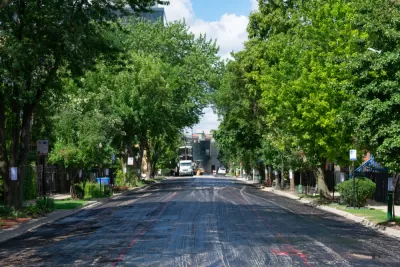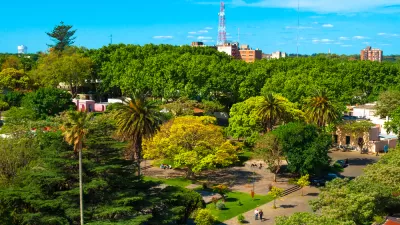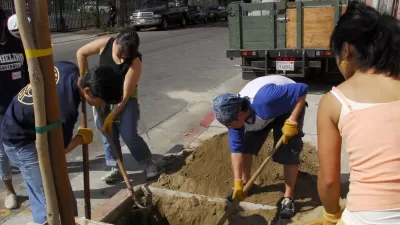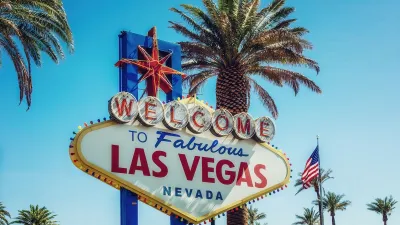An Urban Forestry Board is needed in Chicago to unsure the health and safety benefits of a flourishing urban forest.

Nara Schoenberg reported on August 14, 2020 about the devastating toll the recent derecho storm took on the urban tree canopy of Chicago.
"The Chicago region is still assessing the damage caused by a major storm Monday, but the city has received 4,000 emergency calls about tree damage, officials say, and the Forest Preserves of Cook County report that thousands of additional trees have been seriously damaged," according to Schoenberg.
Daniella Pereira, vice president for community conservation at Openlands, follows up that news with commentary calling on the city to establish an Urban Forestry Board to help the city recover and regenerate from that devastation.
Pereira notes that the city was already on pace to remove a record number trees before the storm hit: "Before the recent derecho storm, public records show removals neared 7,300 trees. Mayor Lori Lightfoot said the storm took out that same number of trees in one afternoon. That’s a total of 14,600 trees lost in 2020, with 4½ months to go." The city is now in the 11th consecutive year of removing more trees than it plants, according to Pereira.
As a solution, Pereira recommends the creation of an Urban Forestry Board tasked with "advancing better policies and practices to care for trees and coordinating city agencies that can impact the health of trees."
"It would also identify opportunities to supplement public with private funds by better coordinating efforts with nongovernment partners and volunteers that work with trees," writes Pereira.
Pereira also devotes substantial space to making the case for the benefits of trees in urban settings.
FULL STORY: Commentary: 7,300 trees lost in the storm: Just one reason Chicago needs an urban forestry board

Alabama: Trump Terminates Settlements for Black Communities Harmed By Raw Sewage
Trump deemed the landmark civil rights agreement “illegal DEI and environmental justice policy.”

Planetizen Federal Action Tracker
A weekly monitor of how Trump’s orders and actions are impacting planners and planning in America.

Why Should We Subsidize Public Transportation?
Many public transit agencies face financial stress due to rising costs, declining fare revenue, and declining subsidies. Transit advocates must provide a strong business case for increasing public transit funding.

Understanding Road Diets
An explainer from Momentum highlights the advantages of reducing vehicle lanes in favor of more bike, transit, and pedestrian infrastructure.

New California Law Regulates Warehouse Pollution
A new law tightens building and emissions regulations for large distribution warehouses to mitigate air pollution and traffic in surrounding communities.

Phoenix Announces Opening Date for Light Rail Extension
The South Central extension will connect South Phoenix to downtown and other major hubs starting on June 7.
Urban Design for Planners 1: Software Tools
This six-course series explores essential urban design concepts using open source software and equips planners with the tools they need to participate fully in the urban design process.
Planning for Universal Design
Learn the tools for implementing Universal Design in planning regulations.
Caltrans
Smith Gee Studio
Institute for Housing and Urban Development Studies (IHS)
City of Grandview
Harvard GSD Executive Education
Toledo-Lucas County Plan Commissions
Salt Lake City
NYU Wagner Graduate School of Public Service





























